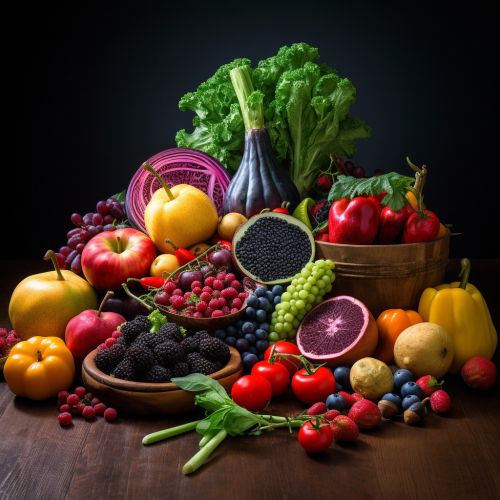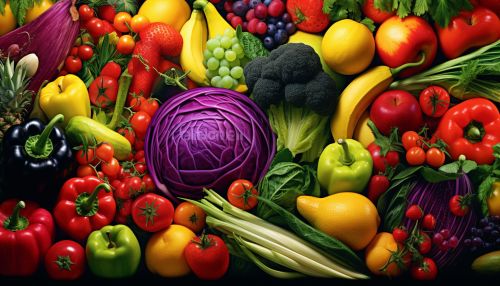Antioxidants
Introduction
Antioxidants are molecules that inhibit the oxidation of other molecules. Oxidation is a chemical reaction that can produce free radicals, leading to chain reactions that may damage the cells of organisms. Antioxidants such as ascorbic acid (vitamin C) or tocopherols (vitamin E) terminate these chain reactions.


Biochemistry of Antioxidants
The biochemistry of antioxidants is complex and involves a variety of reactions and reaction mechanisms. Antioxidants can be categorized into two broad divisions, depending on whether they are soluble in water (hydrophilic) or in lipids (hydrophobic). In general, water-soluble antioxidants react with oxidants in the cell cytosol and the blood plasma, while lipid-soluble antioxidants protect cell membranes from lipid peroxidation.
Mechanism of Action
Antioxidants act through several chemical mechanisms: reducing agents, quenching singlet oxygen, and chelating transition metals. The effectiveness of antioxidants is largely dependent on the specific set of reactions they participate in. For example, glutathione, a tripeptide derived from the amino acids cysteine, glutamic acid, and glycine, is a reducing agent that can donate hydrogen atoms to free radicals.
Antioxidant Enzymes
Antioxidant enzymes, such as superoxide dismutase, catalase, and glutathione peroxidase, play a key role in the antioxidant defense system of the human body. These enzymes catalyze reactions that neutralize harmful free radicals and other oxidative species, and their activity can be influenced by dietary and lifestyle factors.
Dietary Antioxidants
Dietary antioxidants are substances in food that significantly decrease the adverse effects of reactive species, such as reactive oxygen and nitrogen species, on normal physiological function in humans.
Vitamins
Vitamins C and E, and beta-carotene, have significant antioxidant properties. Vitamin C is the most important water-soluble antioxidant and acts primarily in cellular fluid. It effectively neutralizes free radicals in its reduced form. Vitamin E, a fat-soluble antioxidant, is important for protecting cell membranes from oxidative damage.
Phytochemicals
Many phytochemicals, particularly phenolic compounds such as flavonoids and phenolic acids, have antioxidant properties. These compounds are found in a variety of foods, including fruits, vegetables, whole grains, and nuts.
Health Effects
The health effects of antioxidants are the subject of ongoing scientific studies. Some studies suggest that antioxidants can play a key role in preventing diseases that are caused by oxidative stress, such as heart disease, cancer, and neurodegenerative diseases. However, the results of these studies are often inconsistent and inconclusive.
Cardiovascular Disease
Some observational studies have found a correlation between a diet rich in antioxidants and a reduced risk of cardiovascular disease. Antioxidants may protect against cardiovascular disease by preventing the oxidation of low-density lipoprotein (LDL), a process that is thought to contribute to the development of atherosclerosis.
Cancer
The relationship between antioxidants and cancer is complex and not fully understood. Some studies have suggested that antioxidants can help prevent certain types of cancer, but other studies have not found such a link.
Neurodegenerative Diseases
There is some evidence to suggest that antioxidants may have a protective effect against neurodegenerative diseases such as Alzheimer's disease and Parkinson's disease. However, more research is needed to confirm these findings and understand the underlying mechanisms.
